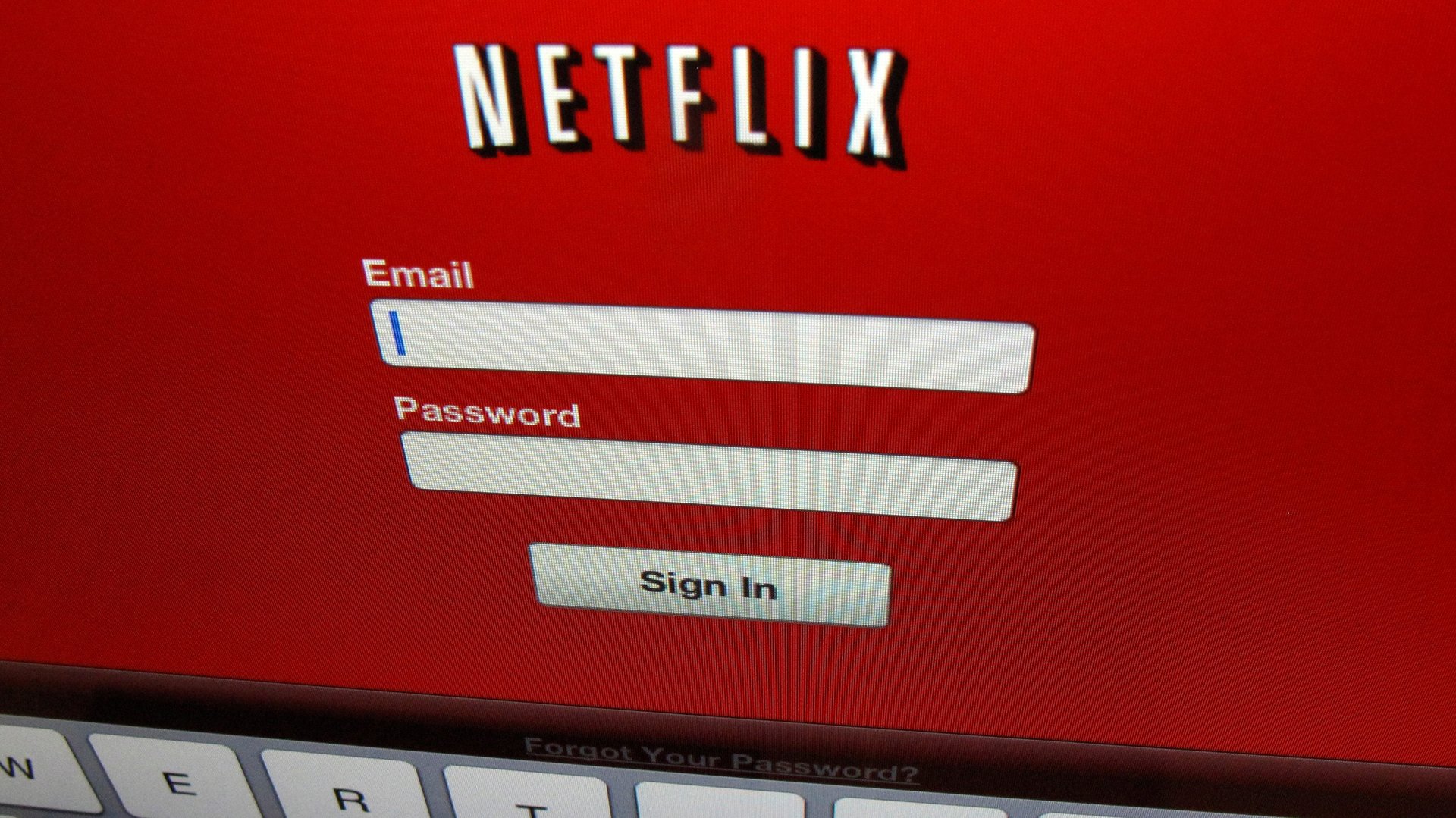If it cracked down on password sharing, Netflix could probably make $400 million more a year
Streaming services like Netflix and HBO Now don’t care if users share passwords. But they may start to.


Streaming services like Netflix and HBO Now don’t care if users share passwords. But they may start to.
Twelve percent of adults who use streaming services such as Netflix have done so for at least one service by using credentials from someone outside of their household at some point, according to a new survey by Reuters. That share is higher among viewers ages 18 to 24. Twenty-one percent of those young-adult streamers have borrowed someone else’s password, found the June survey of more than 4,400 US adults, including 3,500 who streamed video through cable-TV providers or services like Amazon Prime, Hulu, or Netflix.
If Netflix thwarted password sharing, and converted those users into paying subscribers, it could add a good chunk of change to its top line.
In 2017, 54% of US adults said they had Netflix in their households, according to a January survey by Leichtman Research Group. With 126 million households in the US as of 2016, per Statista, that would equal nearly 68 million Netflix streaming households. Now, we’re talking households rather than individuals, so we’re going to cut that 12% of password borrowers in half, to be on the safe side.
If 6% of that audience, or 4 million US households, stopped borrowing passwords and signed up for their own Netflix memberships, Netflix could stand to make as much as $391 million more a year. That’s if each of those new members signed up for Netflix’s cheapest plan, which is $7.99 a month in the US.
That additional $391 million would grow Netflix’s annual revenue, which was $8.8 billion in 2016, by nearly 4.4%. The streaming service has already posted more than 20% growth year over year and quarter over quarter for the past three years. But analysts expect that growth to slow over the next year, as its domestic subscriber base reaches saturation. As of last quarter, Netflix had more than 50 million US subcribers, and it recently crossed the 100 million mark globally.
FactSet analysts estimate Netflix’s second-quarter revenue will still rise 31% to $2.8 billion year over year, when Netflix reports earnings on Jul. 17.
Even with that conservative share of password sharers, $390 million could be an optimistic estimate. Netflix may have a lower share of subscribers that share passwords than the 12% estimated by Reuters, and the 6% used in Quartz’s calculations. Some of the Netflix subscribing households may also have more than one Netflix account. And it’s unlikely that Netflix would convert every single person it revoked shared access to. If Netflix cracked down on password sharing, those users who borrowed passwords would be forced to consider how much Netflix is worth to them. They might not be willing to pay for the service if they already subscribe to others like Amazon Prime or Hulu.
But it shows how much money Netflix could be leaving on the table, in any case. It could represent a viable revenue source for Netflix in the coming years, as domestic growth begins to slow. For now, subscribers can rest easy.
Netflix has not shown any indication that it will bar password sharing. The platform was built to be shared. It allows each member to add up to five individual profiles for users who, depending on the plan, can stream on up to four devices at a time. Preventing users from sharing passwords may even make existing subscribers rethink the value of the service to them, and hurt Netflix in the long run.
That said, at least one person Reuters spoke with, Donielle Bradshaw, who borrowed a sibling’s Netflix password, said she’d be more likely to keep Netflix than Hulu. ”I binge a lot of shows on Netflix,” she told the publication. “I don’t think I could do without it.”